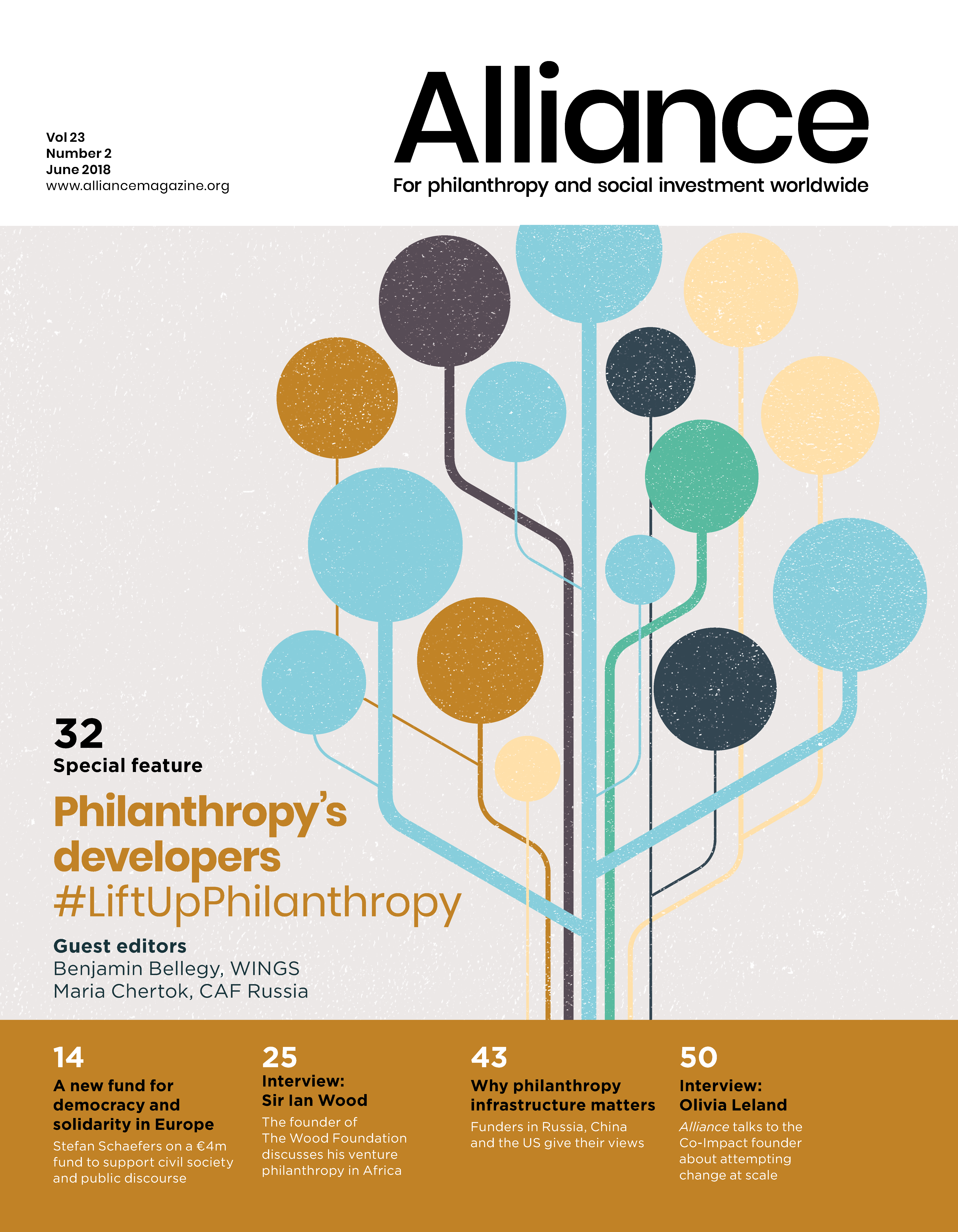As part of an ongoing initiative to help the philanthropic sector more deeply understand the Theory of the Foundation, Rockefeller Philanthropy Advisors recently developed an analytical framework to help foundations to engage in self-evaluation and analysis. This Philanthropy Canvas, ideated from the Business Model Canvas created by Alexander Osterwalder and Yves Pigneur, is a useful tool for aligning all elements of the model for mission, strategy and impact.
As a visual model, the Philanthropy Canvas invites foundation staff, trustees and other key stakeholders to map out the elements necessary to implement a foundation’s strategy in relationship to both its core framework (charter, social compact, and operating capabilities) and to the external environment that it seeks to influence and by which it is in turn influenced.
This framework spurs in-depth thinking on what a foundation is or seeks to be, based on mission and strategy, key activities, resources, relationships (partners and audiences), funding, costs, channels, and beneficiaries. It also accounts for the constraints of resource realities and the state of the world. Understanding how a foundation or program operating model compares to one similarly situated can highlight areas for further analysis and potential change.
The Philanthropy Canvas can also be used to:
- Drive analysis for organizational planning and development.
- Spark discussion of who and what a foundation is among leadership or program teams.
- Evaluate and drive agreement on specific program areas.
- Square ambition with resources, realities and capabilities.
- Drive top-level alignment within a foundation.
- Identify gaps or misalignments, and to develop a shared story.
At the request of participants in our Learning Collaborative, we have developed several operating model types based on certain key characteristics revealed by answers to the various categories in the Canvas. While this list is not definitive, many foundations fit into one (or more) of these six types. As we continue to test our hypothesis with our foundation thought partners, we will explore additional models and considerations. With convenings and research projects planned for the next year and beyond, our learnings will continue to evolve. We hope you join us on and benefit from this journey.
Background on the Theory of the Foundation
RPA’s Theory of the Foundation initiative draws on experience from dozens of foundations to create a framework for introspection on fundamental beliefs about how they operate as organizations. Our aim is to stimulate a discussion about foundations as institutions, beyond programmatic or grantmaking activities, and help foundations more effectively align their purpose and resources for impact.
To view the Philanthropy Canvas, get more information on how to identify your operating model type and review other insights gained from the Theory of the Foundation initiative, please visit TheoryoftheFoundation.org.
Operating Model Types
Campaign Manager
Believes that policy change is a fundamental tool for systemic change, and uses its institutional power to get a policy or solution broadly adopted.
Catalyst
Provides flexible funding to allow new ideas to develop or come to fruition in ways that the foundation does not try to foresee or manage. Field Builder Focuses on creating a new set of institutions that will build a vibrant, powerful ecosystem for an issue or movement.
Talent Agency
Prioritizes betting on individual leaders or key organizations by selecting, strengthening and promoting leading change agents who are closest to the issue.
Think Tank
Applies its expertise to design internally policy or systemic solutions, “market” the approach, and then find implementers for those solutions. Real-Estate Developer Convenes a diverse set of stakeholders to implement a complex, time-intensive solution that generally crosses sectors and traditional program areas.
Olga Tarasov is Director of knowledge development, Rockefeller Philanthropy Advisors
Donzelina Barroso is Director of global philanthropy, Rockefeller Philanthropy Advisors
This advertorial is content paid for by Rockefeller Philanthropy Advisors







Comments (0)